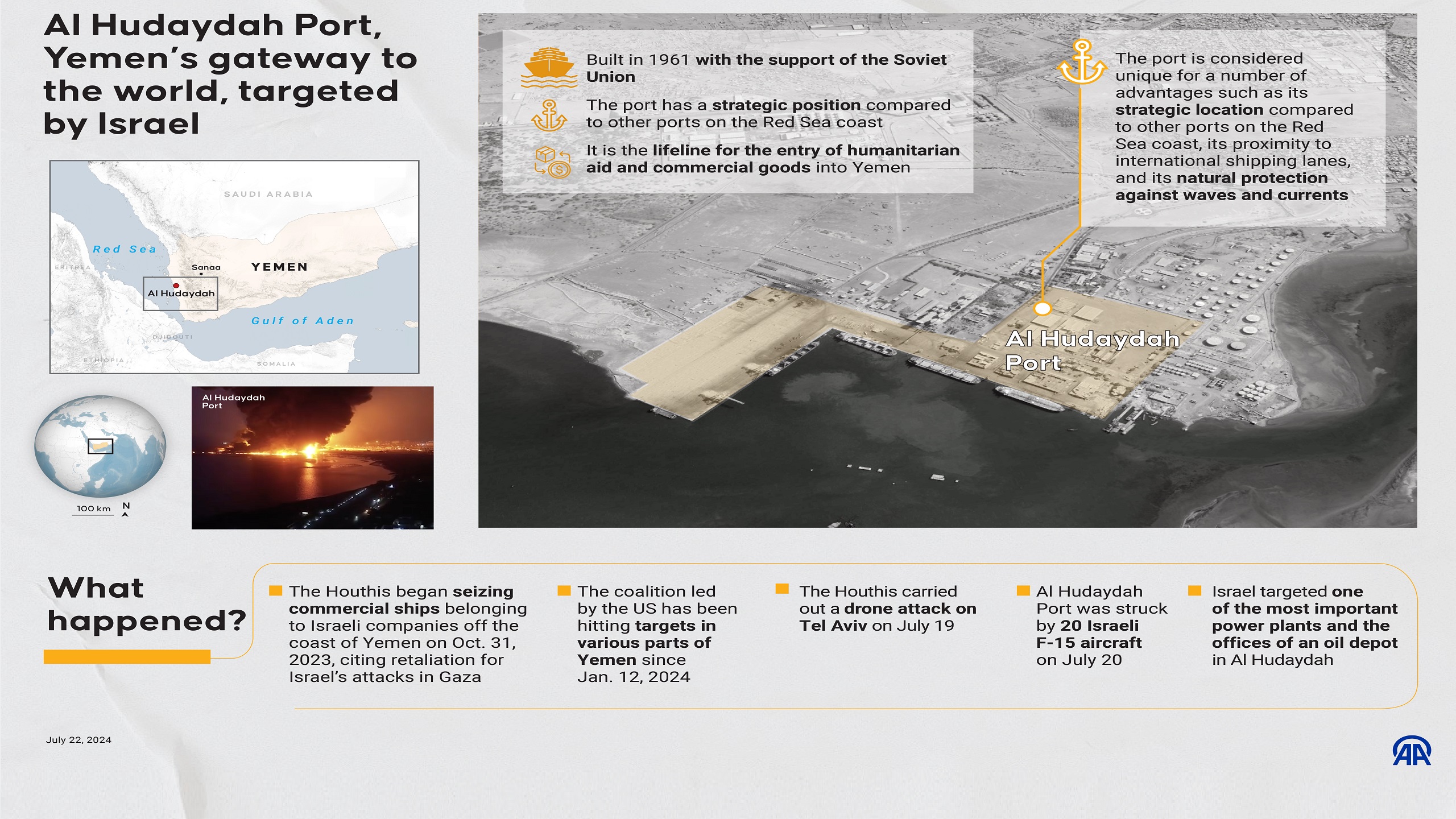Israel’s Only Solution Isn’t a Military One
Maariv, Israel, July 21
Following the Houthi drone strike in Tel Aviv, which resulted in the death of an Israeli citizen, the inevitability of an Israeli response was clear. Yesterday’s operation in Yemen, carried out by the Israeli Air Force and aptly named Operation Long Arm, appears to have met its objectives through precise strikes in the port of Al Hudaydah. The message is unmistakable: Israel will not remain idle as the Houthis not only continue their attacks but also seek to widen their scope. However, the Houthis’ retaliatory statements following the strike suggest that it is highly doubtful this will deter them from future attacks on Israel, possibly even on a larger scale. Reactions from Yemen indicate that yesterday’s operation has only intensified the Yemeni terrorist organization’s resolve to persist in its aggressive actions against Israel. Despite repeated assaults from the international coalition led by the United States, the Houthis manage to maintain operational continuity and retain sufficient capabilities to inflict damage on Israel even after the recent bombardment. These developments also signal that Israel may need to act in Yemen again. Moreover, the connection drawn by Hezbollah’s media outlet Al-Akhbar between the Tel Aviv attack and an expansion of Hezbollah’s own operations suggests that it is highly questionable whether the Israeli assault will impact the broader axis’ readiness to act against Israel. It is highly probable that Israel’s response will lead to an uptick in attacks originating in Yemen and possibly Iraq as well, given the strengthening ties between Shiite militias in Iraq and the Houthis. If Hezbollah persists in its hostilities against Israel, then the Israeli airstrike not only eliminated any immediate prospect of a cease-fire but actually heightened tensions. Since the inception of Operation Iron Swords, Israel has conducted significant operations in Iran, deep within Lebanon, and now Yemen. These impressive military endeavors have not succeeded in severing the connections between axis members and Hamas. It remains dubious that future operations, no matter how formidable, will alter this reality. If Israel aims to conclude the ongoing conflict and avert a broader regional war, a cease-fire in Gaza appears to be the crucial element. Increasing the level of military response may be a necessary measure, but without a diplomatic resolution, it will edge Israel closer to a wider confrontation. —Danny Citrinowicz (translated by Asaf Zilberfarb)
Give the gift of hope
We practice what we preach:
accurate, fearless journalism. But we can't do it alone.
- On the ground in Gaza, Syria, Israel, Egypt, Pakistan, and more
- Our program trained more than 100 journalists
- Calling out fake news and reporting real facts
- On the ground in Gaza, Syria, Israel, Egypt, Pakistan, and more
- Our program trained more than 100 journalists
- Calling out fake news and reporting real facts



